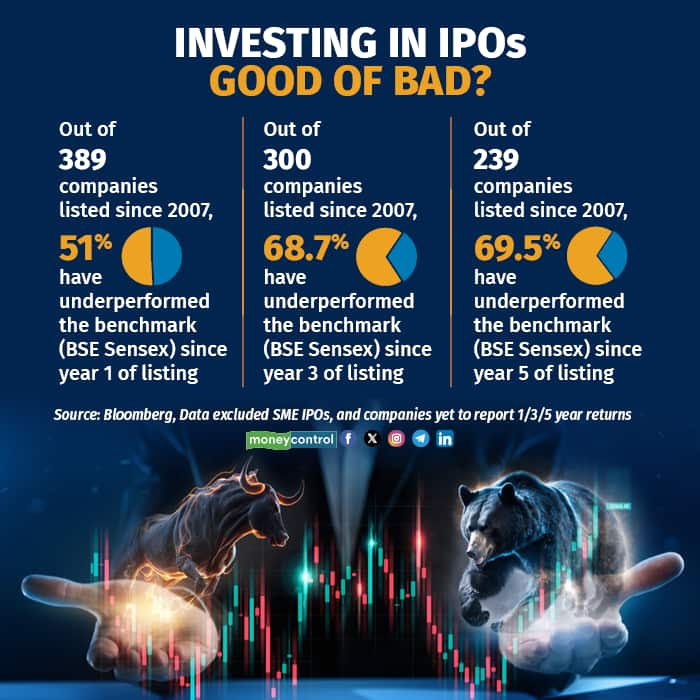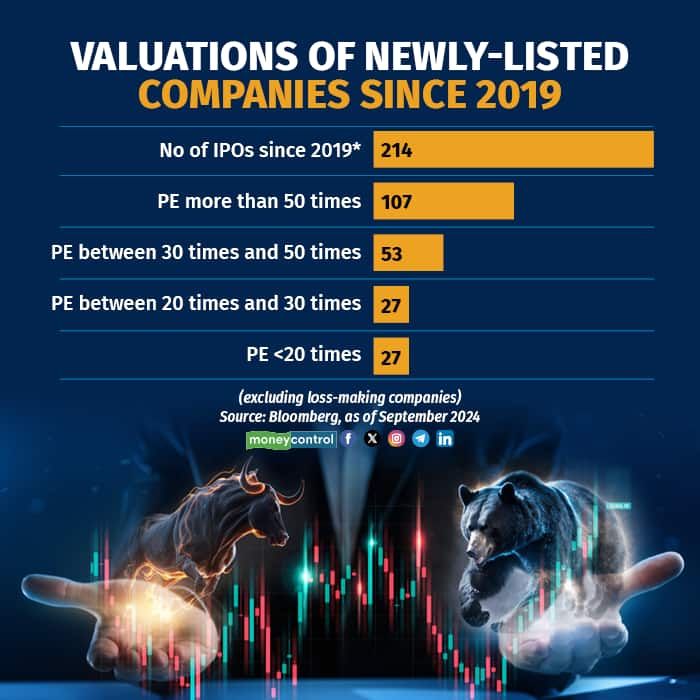



A recent study by SEBI has revealed increasingly speculative investor behaviour during IPOs. On average, investors sold 54 percent of IPO shares allocated to them within a week and 73 percent of the allotment within a year.
This clearly tells us that the key motivation of a majority IPO subscribers is listing gains, and as long the markets are vibrant such as today, this behaviour can continue. Only when subscribers start seeing losses over sustained periods would the frenzy behind listing gains reduce. That has happened in the past.
According to EY, in the first half of 2024, India witnessed a record number of companies coming the market via IPOs ~ 27 percent of global IPOs, accounting for more than 9 percent of worldwide IPO proceeds in the period. This trend is expected to continue in the second half of 2024 with certain large IPOs.
While the recent investor experience of investing in IPOs has been good, courtesy buoyant markets, that is not always the case. Most investors would have had a terrible experience investing in IPOs (of new-age internet companies) in 2022-23. Hence it is crucial to look at longer term historical data.

Data from global markets also paints a similar or worse picture. According to Professor Jay R. Ritter from the University of Florida, who studied US IPO trends from 1980-2022, three-year basis IPO returns are negative relative to the benchmark. While there could be many reasons for this pattern; two are very evident.
Also read | National Pension System: How to choose the right annuity plan?
 Table 1
Table 1Quantum’s Founder Ajit Dayal likens the IPO to a beauty parade, where the investment banker who offers the company the highest price wins the mandate. Thus, interests of the investor is compromised. At Quantum we generally do not participate in IPOs. Apart from management quality which can only be gauged over time, liquidity consideration in the stock is also very important to us. Hence, we wait for the volumes to stabilise as trading volumes can be quite volatile in the initial period after listing.
Also read | How not putting your eggs in one basket can help you achieve goals, minimise risks
IPOs are a great vehicle for firms to raise money and fund credible business models. But investors must be extremely selective. While there can be some exceptional companies which may come through an IPO; historical data suggests (Table 1) that the odds are heavily stacked against investors making money in an IPO. It is better for the investor to wait, gauge management quality and let the newly listed company show normalised profits before ascertaining the fair value to be paid for the company.
Also read | Why Indian students pursuing higher education abroad need life insurance
Discover the latest Business News, Sensex, and Nifty updates. Obtain Personal Finance insights, tax queries, and expert opinions on Moneycontrol or download the Moneycontrol App to stay updated!
Find the best of Al News in one place, specially curated for you every weekend.
Stay on top of the latest tech trends and biggest startup news.